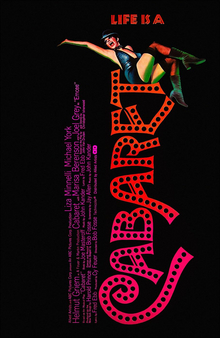Die Berlin-Romane, das sind die autobiographischen Werke „Mr Norris changes train“ und „Goodbye to Berlin“. Geschrieben hat sie – und berühmt geworden ist durch sie – Christopher Isherwood (1904 – 1986), der von 1929 bis 1933 in Berlin lebte. „Mr Norris changes train“ erschien 1935, der zweite Roman vier Jahre später.

Auch wenn einem diese Romantitel wenig sagen, viele kennen das Muscial „Cabaret“, insbesondere als Oscar-gekrönten Film mit Liza Minnelli als Sally Bowles. Die Inspiration hierzu ist „Goodbye to Berlin“.

Mit Isherwood hatte ich selbst nicht viel zu tun, schon gar nicht während meiner Schulzeit. Aufmerksam wurde ich auf ihn durch die DVDs „In their own words“ über englische Literatur des 20. Jahrhunderts. Hier fand ich sowohl ein Interview mit Isherwood als auch alles, was über „Mr Norris changes trains“ gesagt wurde, sehr faszinierend und anregend. Später las ich dann in John Careys „Pure pleasure: a guide to the 20th century’s most enjoyable books“ erneut über Mr Norris. Danach habe ich das Buch bestellt.
Enttäuscht wurde ich nicht, im Gegenteil. Insbesondere in Mr Norris: Eine direkte, umstandslose Sprache – nuancierte, dreidimensionale Charaktere – arglose Beschreibungen verstörender Inhalte – ein spannender Plot, den man bis zum Schluss nicht ganz durchschaut – der Zeitbezug mit den Wirrungen der letzten Jahre der Weimarer Republik – und so gemacht und so gebaut, dass das Denken auf intelligente Weise angeregt wird.
Großes Kino also. Ab Szene 1, in dem der Ich-Erzähler im Zug das erste Mal Mr Norris trifft:
„My first impression was that the stranger’s eyes were of an unusually light blue. (…) They were the eyes of a schoolboy surprised in the act of breaking one of the rules. (…) he seemed not to have heard or seen me cross the compartment from my corner to his own, for he started violently at the sound of my voice (…). Smiling, anxious to reassure him, I repeated my question:
‚I wonder, sir, if you could let me have a match?‘
Even now, he didn’t answer at once. He appeared to be engaged in some sort of rapid mental calculation, while his fingers, nervously active, sketched a number of flurried gestures round his waistcoat. For all they conveyed, he might equally have been going to undress, to draw a revolver, or merely make sure that I hadn’t stolen his money. Then the moment of agitation passed from his gaze like a little cloud, leaving a clear blue sky. At last he had understood what it was that I wanted:
‚Yes, yes. Er – certainly. Of course.‘
As he spoke he touched his left temple delicately with his fingertips, coughed, and suddenly smiled. His smile had a great charm. It disclosed the ugliest teeth I had ever seen. They were like broken rocks.“
Careys letzter Satz in seinem Essay über „Mr Norris changes trains“:
„He prompts the thought that the face of evil is not monstrous or diabolic, but weak, self-seeking and a bit pathetic – not so very unlike our own.
Beide Romane gibt es auf deutsch: „Mr Norris steigt um“ und „Leb wohl, Berlin“.
